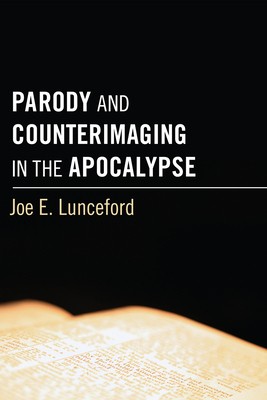
- We will send in 10–14 business days.
- Author: Joe E Lunceford
- Publisher: Wipf & Stock Publishers
- Year: 2009
- Pages: 314
- ISBN-10: 1498252230
- ISBN-13: 9781498252232
- Format: 15.2 x 22.9 x 1.9 cm, hardcover
- Language: English
- SAVE -10% with code: EXTRA
Reviews
Description
As numerous scholars have noted, The Revelation was first received orally. Directed not merely to the intellect, its author deliberately employed different literary schemes and devices to evoke the imagination of his audience. In this new study, Joe Lunceford examines the specific use of parody and counterimaging in The Revelation, arguing that this often overlooked device was an essential means by which its author engaged the imagination of his readers and hearers. In light of the best of recent scholarship on The Revelation, Lunceford examines over thirty uses of this device--most notably the contrasting images of the ""evil trinity"" of dragon, beast from the sea, and beast from the earth and the Holy Trinity. Joe E. Lunceford is Professor of New Testament at Georgetown College, Georgetown, Kentucky.
EXTRA 10 % discount with code: EXTRA
The promotion ends in 15d.15:21:00
The discount code is valid when purchasing from 10 €. Discounts do not stack.
- Author: Joe E Lunceford
- Publisher: Wipf & Stock Publishers
- Year: 2009
- Pages: 314
- ISBN-10: 1498252230
- ISBN-13: 9781498252232
- Format: 15.2 x 22.9 x 1.9 cm, hardcover
- Language: English English
As numerous scholars have noted, The Revelation was first received orally. Directed not merely to the intellect, its author deliberately employed different literary schemes and devices to evoke the imagination of his audience. In this new study, Joe Lunceford examines the specific use of parody and counterimaging in The Revelation, arguing that this often overlooked device was an essential means by which its author engaged the imagination of his readers and hearers. In light of the best of recent scholarship on The Revelation, Lunceford examines over thirty uses of this device--most notably the contrasting images of the ""evil trinity"" of dragon, beast from the sea, and beast from the earth and the Holy Trinity. Joe E. Lunceford is Professor of New Testament at Georgetown College, Georgetown, Kentucky.


Reviews